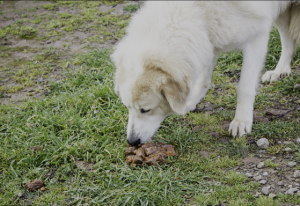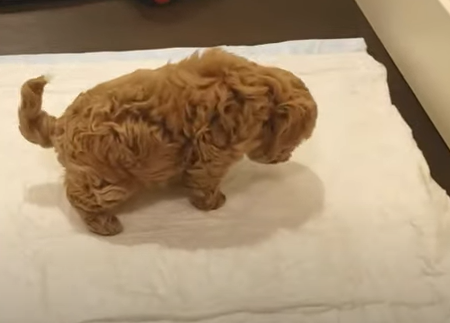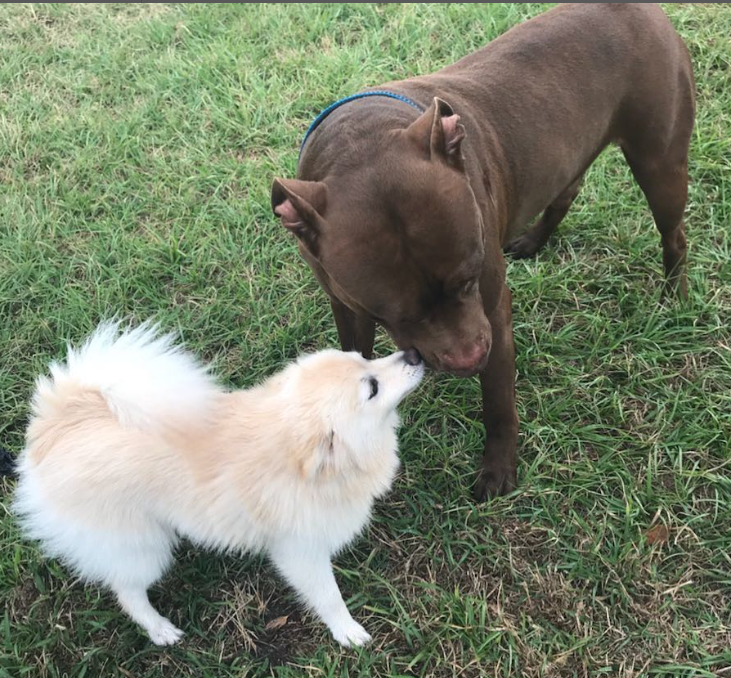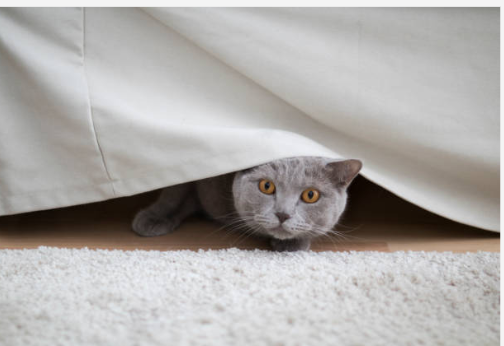How to Stop your Dog from Eating Poop
Coprophagy, or eating feces, is a common problem in dogs. Various factors, including medical conditions, dietary deficiencies, behavioral problems, and boredom can cause it.
If your dog is eating poop, it is essential to first rule out any medical causes. Take your dog to the veterinarian for a checkup and to discuss their diet. If your dog is healthy and their diet is complete, the problem is likely behavioral.
There are a few things you can do to stop your dog from eating poop:
- Remove the temptation. If your dog has access to feces, they are more likely to eat it. Please pick up your yard regularly and clean up after your dog when you take them for walks.
- Make poop taste bad. Several products on the market can make poop taste harmful to dogs. These products typically contain a harmless but bitter-tasting substance. You can also try sprinkling your dog’s food with pineapple juice or hot sauce.
- Feed your dog a balanced diet. A diet deficient in nutrients can make dogs more likely to eat poop. Ensure your dog is eating high-quality food appropriate for their age and breed.
- Teach your dog to “leave it.” This command can teach your dog to ignore poop and other things you don’t want them to eat. Start by teaching your dog to leave their food bowl alone. Once they have mastered that, you can start practicing in more challenging situations.
- Redirect your dog’s attention. If your dog is about to eat poop, try to distract them with something else. You can offer them a toy or a treat or try to get them to play with you.
If you have tried all these things and your dog is still eating poop, you may want to consult a behaviorist. A behaviorist can help you identify the problem’s underlying cause and develop a plan to address it.
Here are some additional tips to help you stop your dog from eating poop:
- Be consistent. It is essential to be compatible with your training and behavior management. If you only try to stop your dog from eating poop sometimes, they are less likely to learn.
- Be patient. Breaking your dog from this habit may take some time and patience. Keep going even if you don’t see results immediately.
- Be positive. Positive reinforcement is the best way to train your dog. Reward them for good behavior, and avoid punishing them for bad behavior.
If you have any concerns about your dog’s behavior, consult your veterinarian or a behaviorist.
Here are some additional things to keep in mind:
- Coprophagy can be a sign of a medical condition. If your dog has recently started eating poop, it is essential to take them to the veterinarian to rule out any underlying medical problems.
- Coprophagy can be a behavioral problem. Some dogs eat poop out of boredom, stress, or anxiety. If your dog appears to be eating poop out of boredom, try to provide them with more enrichment activities, such as puzzle toys, chew toys, and regular exercise. If your dog appears to be eating poop out of stress or anxiety, talk to your veterinarian or a behaviorist about ways to manage their stress levels.
- Coprophagy can be a learned behavior. If your dog has seen other dogs eating poop, they may be more likely to do it themselves. If you have a puppy, supervise them closely and discourage them from eating poop.
- Punishment is not effective in stopping coprophagy. It can make the problem worse. If you punish your dog for eating poop, they may learn to hide their behavior from you.
If you struggle to stop your dog from eating poop, please consult your veterinarian or a behaviorist. You can help your dog break this habit with patience and consistency.

Other things to keep in mind
- Coprophagy can be dangerous. Poop can contain harmful bacteria and parasites that can make your dog sick. Preventing your dog from eating poop is essential to keep them healthy.
- Coprophagy can be a social problem. It can be embarrassing and unsanitary if your dog eats poop in public. Training your dog not to eat poop in any situation is essential.
Conclusion
Coprophagy is a common problem in dogs, but it can be solved with patience and consistency by following the tips above.


